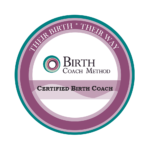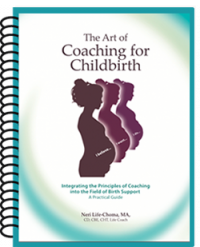
Is the Doula Profession at Risk?
Doulas’ Dilemma #2: The Doula Scope of Practice
This is the second blog in a series of three that I began writing in November. I am very passionate about the doula profession. That’s why I feel called to write this series before it is too late. And by “too late” I mean that I think our profession is in danger. Being a doula trainer and at the same time an approved continuing education provider for obstetric nurses, allows me to be connected and empathetic to both sides of the conflict – doula and medical caregivers. On top of listening to nurses’ pain points in their relationships with doulas, I recently have been invited to speak at a few OBGYN and midwives’ practices and heard that they are on the verge of banning doulas
Additionally, recent events confirm what I have been fearing – the current practice of doulas’ who share evidence-based information that supports better obstetric practice (while not being medically trained and bearing no liability for their clients’ health) is going to hurt us.
- It puts our relationships with medical caregivers at risk.
- It will lead more cities to follow New York in attempts to license doulas.
- It will lead our best friends – hospital-based midwives – to ban doulas or have blacklists of unwanted doulas that they don’t trust.
- It might also make it harder for us to find paying clients because they hear more and more stories about doulas who break the trust and rapport that couples have established with their medical providers.
This situation is the result of one of the biggest dilemmas in our profession – doulas’ scope of practice. It has never been fully defined and I believe that we are aware of disputes between different communities and certifying organizations in regards to this dilemma. If you search for “What is a doula”, you’ll find out that doulas are “trained professionals who provide continuous physical, emotional and informational support to a mother before, during and shortly after childbirth to help her achieve the healthiest, most satisfying experience possible.” (DONA)
The role of providing information needs clarification, explanation and maybe even restrictions
What type of “Informational Support” do doulas provide?
This broad role definition raises a few questions. When I read “provide informational support,” so many questions come to mind:
- What is this information supporting?
- Does the information support natural birth, or any desired birth?
- Does the information support the clients’ beliefs and values?
- Does it support birth givers’ trust in their care provider?
- Does the information lead the birth giver to dismiss their care provider’s medical advice?
Is it beneficial for our clients to be informed in a way that leads them to choose between two opposing approaches to maternal care?
You get the idea, right? A piece of information can hardly ever support all of the above, and therefore the role of providing information needs clarification, explanation and maybe even restrictions. Recent attempts to suggest that doulas provide evidence-based information to their clients are problematic too. This is due to the fact that doulas aren’t trained in critical reading of medical studies and received no medical training.
I always perceive myself as the only agent who focuses on birth givers’ experiences as my first priority
What is the “healthiest birth experience” available for your clients?
Another dilemma that relates to doulas’ scope of practice is in the phrase “achieve the healthiest experience possible?” Here again, I find myself wondering: Can I know what is the ‘healthiest experience possible’ for each of my clients without being medically trained?
Claiming to know what is the healthiest birth experience is based on the assumption that natural and unmedicated birth is the healthiest possibility always and for everyone. This standardization goes against our main role which is to get to know the client and provide client-centered birth support. After all, doulas have emerged because of the need to provide continuous support and close relationships in maternal care.
In my 20 years of practice, my first priority has been the birth giver’s experience. I believe that I’m the only agent who has this focus in mind. I can only be fully engaged in facilitating a positive experience if I am not preoccupied with liability to the outcomes. I have witnessed the level of fear medical caregivers practice with because they are held liable to the outcomes. In my opinion, many of the flaws of obstetric practices originate with this liability and the fear it triggers.
Why would any doula want to practice from the same place?
Can we resolve this dilemma by adopting the standards of professional coaching?
In my search for a standard of practice that I feel comfortable with and a role definition that suits my perspective, I turned to the practice of coaching. Once I adopted the coaching principles and established the coaching relationships with my clients, my scope of practice as a doula became clear.
A coach’s professional position is not determined by the specialized knowledge they hold. It relies solely on their leadership skills and coaching competencies.
According to the ICF code of ethics, a coach’s professional position is not determined by the specialized knowledge they hold. It relies solely on their leadership skills and coaching competencies. Some examples of coaching competencies are active listening, powerful questioning, creating awareness, designing actions, and eliciting clients’ accountability for their optimal performance.
The International Coach Federation carefully crafted the coaching scope of practice due to the potential overlap between the practices of coaching and behavioral therapy. This is the same case in birth support- a potential overlap between the practice of doulas and medical caregivers. Adopting the coaching professional standards will help the medical community to recognize doulas as a valuable asset in the birthing room.
This is why I developed the Birth Coach Method philosophy and programs – not only for doulas to be recognized as a valuable asset in the birthing room which I believe will follow as a result of this shift in the doula practice, but for doulas to BE that agent who leads and empowers birthing individuals and members in their support group.
We shift the focus from providing informational support to helping clients come up with their own strong convictions that they can confidently rely on
By adopting these professional standards as doulas’ scope of practice, we shift the focus from providing informational support to helping clients come up with their own strong convictions that they can confidently rely on.
Become a recognized valuable asset. Become a Birth Support Coach.
So if you don’t feel comfortable being an expert in evidence-based obstetric practice or in “healthy birth”, and if reading this blog post helped you recognize the danger in this position, I can help you make the shift in our doula practice. Join the Birth Support Coaching Course and you’ll learn to focus on facilitating clarity, competence, confidence, commitment, convictions and more.
 BECOME A BIRTH SUPPORT COACH
BECOME A BIRTH SUPPORT COACHIf you are a birth professional (doula, prenatal yoga teacher, etc.) and wish to learn the same coaching techniques that health and wellness coaches have found to be so successful in their practices, only learn how to apply it coaching expectant couples, we invite you to enroll in our Coaching for Pregnancy and Birth Certification Course.
If you are considering a career as a doula, please check out our online doula training or our Bay Area doula training in which we also teach coaching strategies.
If you are an expectant parent looking for birth support and would like a doula certified by Birth Coach Method, let us know and we will let you know if there is one in your area.
- Overshadowing the Transformative Essence of Childbirth with Data - July 10, 2024
- Navigating the Epidural Dilemma - May 28, 2024
- Informed Decision in Birth Support: A Myth of Empowerment? - April 29, 2024



blog3008.xyz
Hello There. I found your blog the use of msn. That is a really well written article.
I will make sure to bookmark it and come back to learn more of your helpful information. Thank you for the post.
I’ll certainly return.